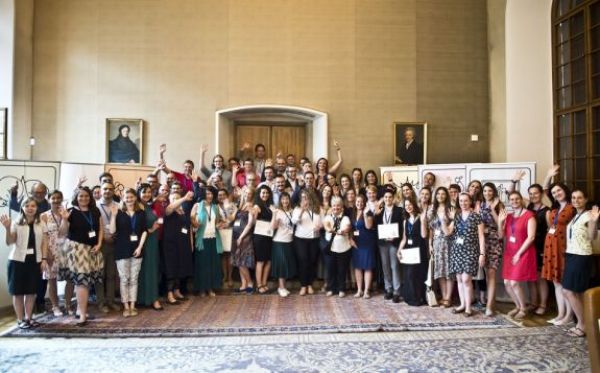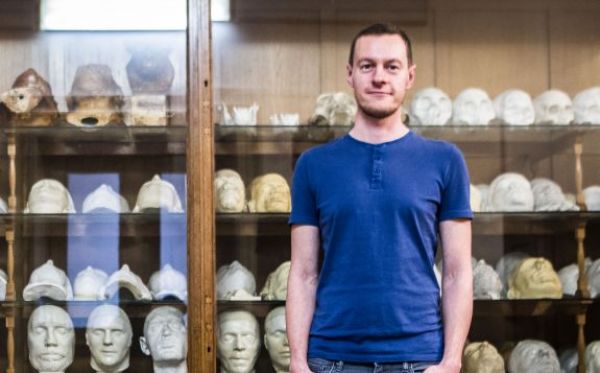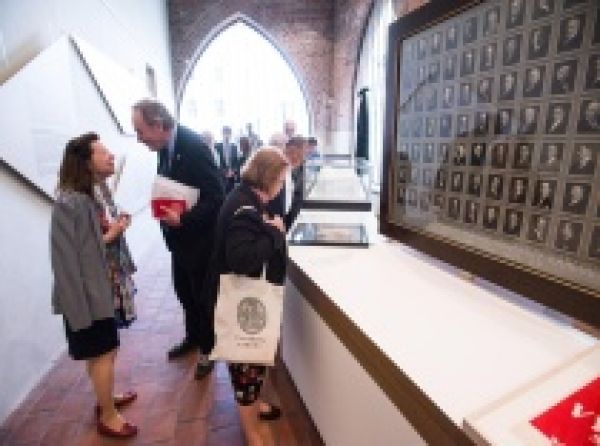
Jan Velinger
Studied film directing at FAMU in Prague and began in current affairs in commercial television in 1996. Worked as a reporter and presenter at the English service of Czech Radio for more than sixteen years, before joining Charles University’s media team in June 2018. He is responsible for the English edition of Forum Magazine and Forum Radio podcasts.
50 years of hip replacement surgery in the Czech Republic
The World According to LARP
How programmers in 1980s Czechoslovakia used games to mock the regime
PCs were almost impossible to get in 1980s Czechoslovakia but microcomputers proved a different matter. As so-called micros were slowly smuggled into the country and hobby programming quickly caught on, enthusiasts soon coded all manner of computer games. Under the radar of the authorities, some subtly - and others rather daringly – mocked the socialist regime.
CU’s hockey team triumphs in Battle on Ice
Insect populations falling at dramatic rate
Zoologist Petr Šípek on how dramatic drop in numbers can impact ecosystems
More and more analysis is pointing to a dramatic drop in insect populations in Europe and across the world. A long-term study in neighbouring Germany, for example, suggests that flying insect populations dropped alarmingly by more than 75 percent over the last three decades.
Rector Henrik C. Wegener on universities, alliances and the coronavirus
Prof. Lalive delivers keynote at IDEA at CERGE-EI event
Much of the focus of IDEA, a think-tank of the Economics Institute of the Czech Academy of Sciences, which is part of CERGE-EI, is tied this year to the novel coronavirus, and anti-Covid measures. However, that is far from its only activity: this week the think tank hosted an online conference examining the influence of public policy on labour markets.
From students on the front lines to pilots delivering medical supplies
Life in the Disinformation Age
Disinformation online by malicious actors by now will surprise few people – but the big question is how best to tackle the problem. Increasingly, some are saying more damage than good is committed when the issue is framed only in alarmist terms and described solely as conflict or war – shutting down critical thinking.
The Apollo Moon Landing – 50 Years On
The moon has fascinated us for most of recorded history: a guiding light on dark seas, a sacred disk illuminating the heavens, a symbol of the unattainable, a god. For most of human existence, its stark, cratered surface remained impossibly beyond reach. All that changed 50 years ago, on July 20, 1969. As some 500 million people watched a live televised broadcast (the largest ever TV audience at the time), the commander of the Apollo 11 mission Neil Armstrong emerged from the Lunar Module called the Eagle and – in his NASA spacesuit - became the first man in history to step onto the Moon’s dusty surface.
Dorm Life at Charles University's Větrník
Foreign students who have the chance to study at Charles University under the Erasmus+ program often describe their semester or two in Prague as “unforgettable”. Not only is Erasmus+ an opportunity to advance in one’s chosen major but it’s a chance to experience something different in the heart of Europe.
CU backs National Technical Museum fundraiser
CU hosts Excellence-in-ReSTI meeting & awards
New exhibition marks Wenceslas IV’s legacy
Between Two Ages is the sub-caption of a new exhibition which opened at Charles University on Wednesday, marking the reign of Czech King Wenceslas IV, on the 600th anniversary of his death, a monarch who bridged the period of prosperity under his father, Charles IV, and religious and social upheaval which followed.
CU’s Martin Hora: lead author of study published in “Journal of Human Evolution”
CU holds on-site testing for high cholesterol
Fighting Talk: Kickboxer Terezka Cvingerová
“A Theory of Strangeness” author Pavla Horáková
One hundred objects
Nobel laureate Kip Thorne at Charles University
It has been more than three years since scientists used the LIGO system or Laser Interferometer Gravitational-Wave Observatory for the first time in history directly observe gravitational waves. The stunning discovery confirmed predictions Albert Einstein made with his theory of general relativity almost a hundred years earlier.


































